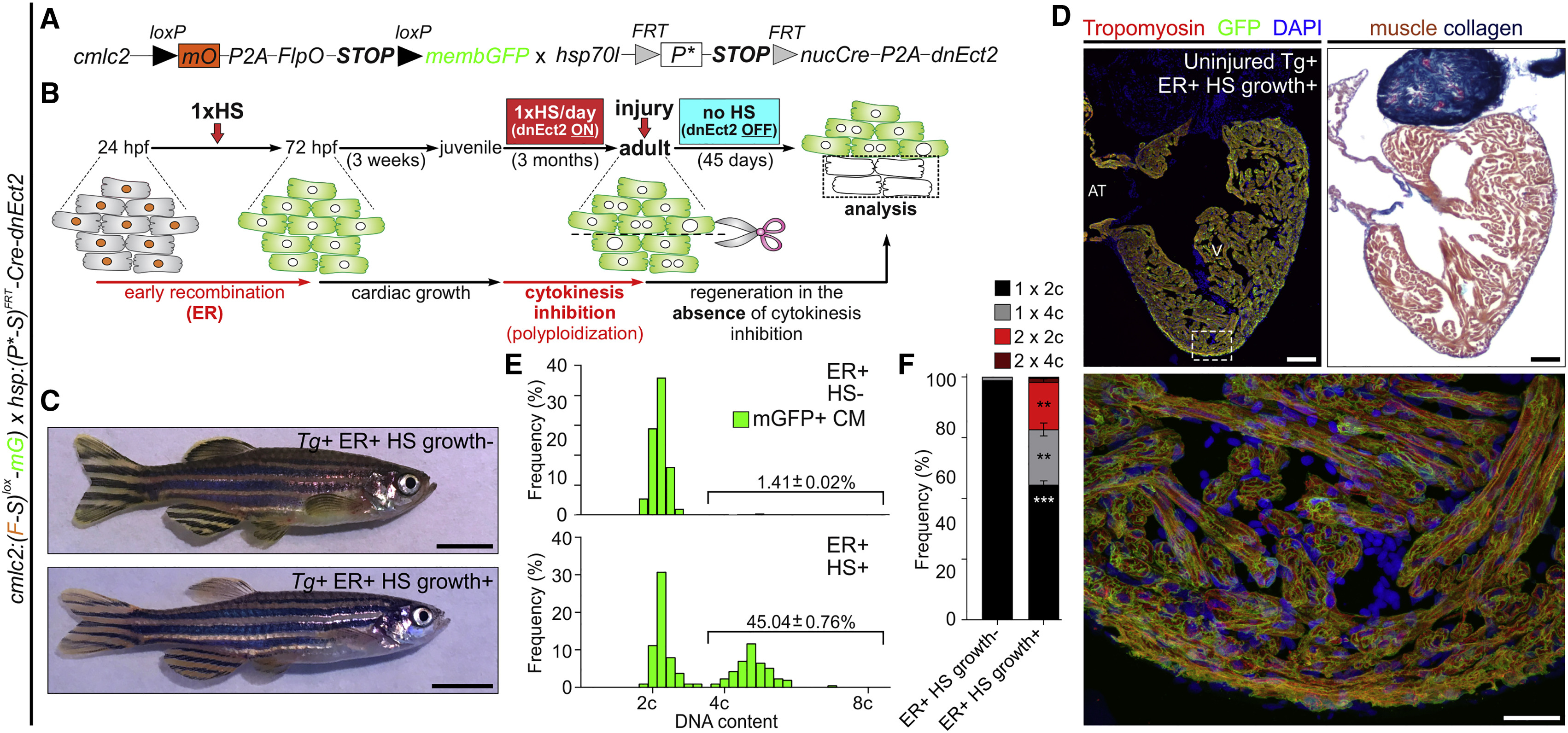Fig. 4
Experimental Strategy to Generate Hearts Highly Enriched in Permanently Labeled Polyploid Cardiomyocytes through Transient Cytokinesis Inhibition
(A and B) Transgenes and experimental strategy employed to maximize the percentage of cardiomyocytes susceptible to polyploidization.
(C) External appearance of double-transgenic adult zebrafish, subjected to early recombination during embryogenesis, grown in the absence (top) or presence (bottom) of polyploid-inducing heat-shock treatments.
(D) Adjacent sections from a fully recombined adult heart immunostained for tropomyosin and GFP (left) or stained with AFOG (right). Boxed area shows apex region at higher magnification.
(E) DNA content of GFP+ cardiomyocytes from the indicated cohorts.
(F) Quantification of indicated cardiomyocyte populations from l (mean ± SD, n = 564 and 406 total cardiomyocytes from 4 to 4 pooled ventricles, respectively; ???p < 0.001; ??p < 0.01, by one-way ANOVA followed by Tukey's multiple comparisons test).
CM, cardiomyocyte; ER, early recombination; HS, heat-shocked. Scale bars, 5 mm (C) and 100 ?m (D). See also Figure S6.
Reprinted from Developmental Cell, 44, González-Rosa, J.M., Sharpe, M., Field, D., Soonpaa, M.H., Field, L.J., Burns, C.E., Burns, C.G., Myocardial Polyploidization Creates a Barrier to Heart Regeneration in Zebrafish, 433-446.e7, Copyright (2018) with permission from Elsevier. Full text @ Dev. Cell

